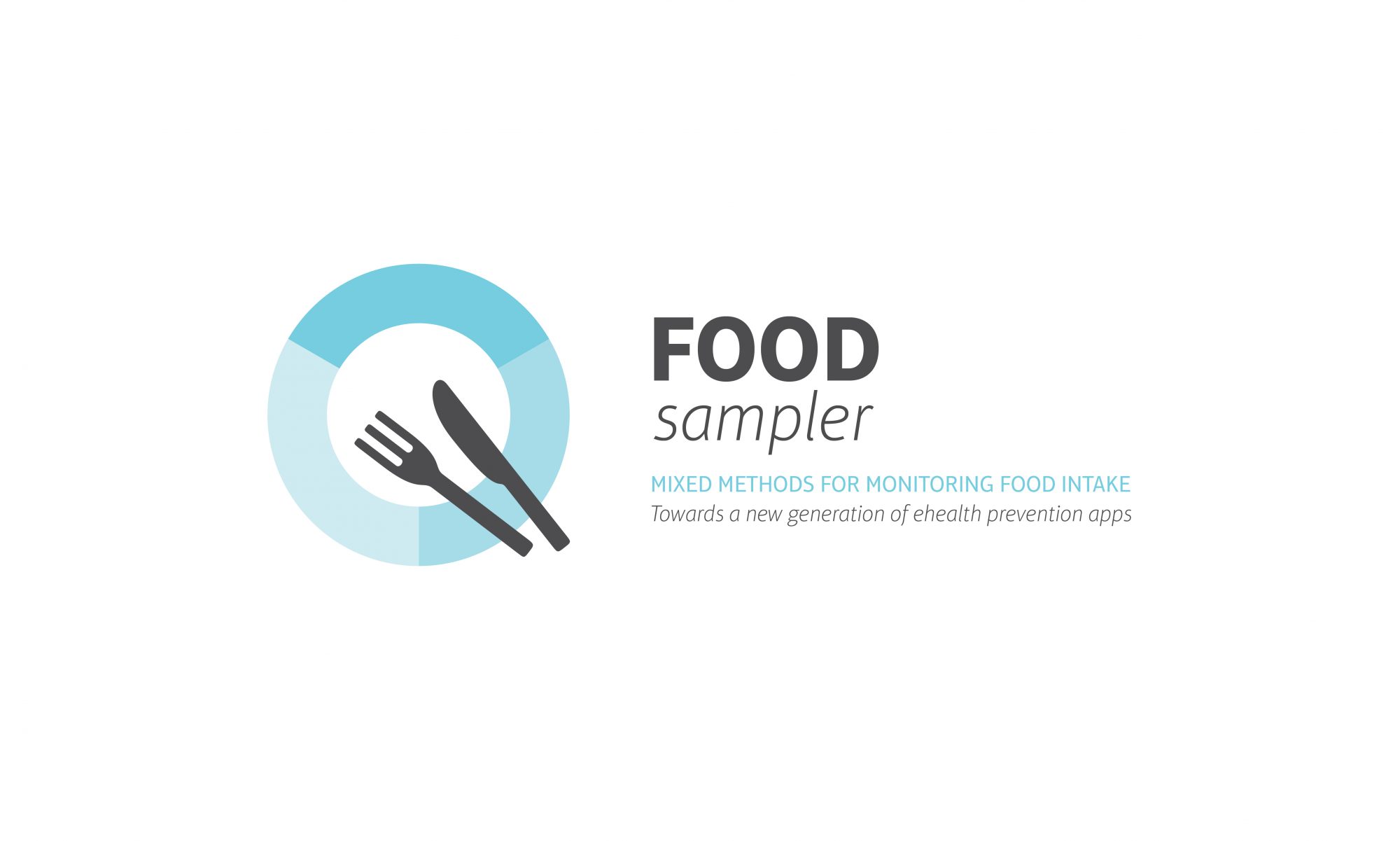In this section specific progress of the Research and Design Exploration phases are described.
RESEARCH PHASE
RESEARCH PLAN
The objective of the research is to:
- Describe the contextual determinants that influence food intake choices
- Explore food reporting qualities that will engage people to report food context
The proposed plan involves the following research activities:
- Conducting focus group sessions with dieticians. Details on protocol, participation, questions asked and data collection methods and techniques used will follow.
- Conducting contextual interviews with adults with obesity, as well as parent of obese children under clinical treatment. Details on protocol, participation, questions asked and data collection methods and techniques used will follow.
- Conducting sensitizing booklets and co-design sessions with adults with obesity. Details on protocol, participation and materials used will follow.
Most relevant design method are visualised below:
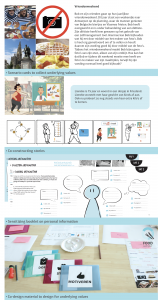
During the period May – November 2018, these activities were conducted. The following visualisation describes the recruitment and final participation numbers for each of these activities.
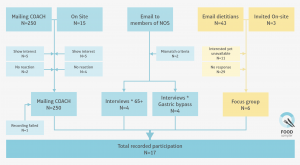
RESEARCH SUMMARY
The research phase of the project has resulted in the development of a Food Contextual Framework to identify the descriptors that influence food intake decisions. Preliminary outcomes have been published in a Dutch dietician scientific magazine, and a final version of the framework will be soon published internationally. A preliminary visualisation of the framework shows the four main determinants of food intake choices and details of the aspects involved in each:
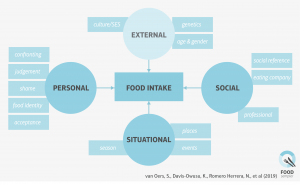
In specific, the user research activities which involved contextual interviews, sensitizing booklets, and co-design sessions, have provided an understanding of the qualities obesity adults experienced when confronted with their condition in their daily activities. A preliminary visualisation of these qualities demonstrates the current and desired qualities the participants have expressed during our sessions:
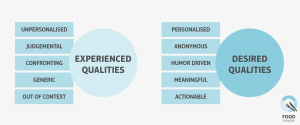
DESIGN EXPLORATION PHASE
DESIGN EXPLORATION PLAN
The main objective of this phase is to explore food reporting strategies to make reporting context in daily life food intake choices an effortless and engaging activity. Therefore, two explorative interventions have been planned: one to explore efficiency and one to explore engagement of the activity of reporting.
We considering the following approach to address efficiency and engagement:
- We defined efficiency by what’s “relevant”. In other words, to reach efficiency we don’t aim to capture all with minimal resources but what’s relevant. We will validate what are the relevant aspects coming from the four descriptors that people want to report where. The hypothesis (A) is: Reporting relevant quantitative data can be experienced as efficient.
- We defined engagement by the concept of “frequency”. To increase frequency the qualities of the reporting experience have to be meaningful and positive. Based on our quality descriptors we will start by exploring interactions that are “free of judgement”. Here we are looking at the influence of a) the judgement free input technique (e.g. ‘the vault’) and b) the judgement free feedback technique (e.g. ‘timeline’). The hypothesis (B) is: frequent reporting can be achieved when input and feedback are judgement free.
The proposed plan involves the following design research activities:
- DigestInn study, ran in period July-October 2019. This study will allow us to understand to what extend people’s experiences and feelings connected to design qualities of a food reporting app influence their engagement of using the app. We will use this data as input for the engagement explorative intervention.
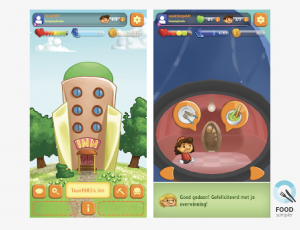
- Engagement explorative intervention, ran in period September-October 2019. This design activity aims to explore embodiments for digital and physical reporting interfaces to minimize negative feelings of judgement and report on contextual aspects of food choices. The five concepts that has been explored are visualised below:
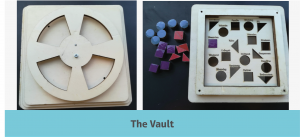
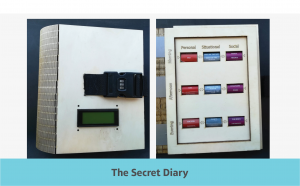
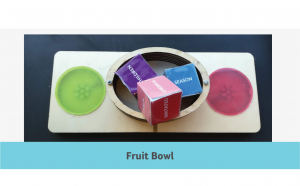
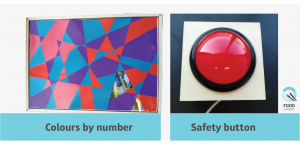
- Efficiency explorative intervention, expected to be ran in period November-December 2019. This design intervention to explore relevant areas in the home setting where different types of food contextual information is meaningful to be reported by people. Several physical tokens will be given to users to place at different places in the home that connect to food (e.g. next to fridge, at dinner table, at coach, etc.) which they can report different type of contexts (e.g. social, temporal, psychological). We intend to explore with them what context makes more sense to report on where.
Video impressions on the experimental embodiments
The video containing all concepts:
The Fruitbowl:
The Secret Diary:
The Vault:
The Safety Button:
